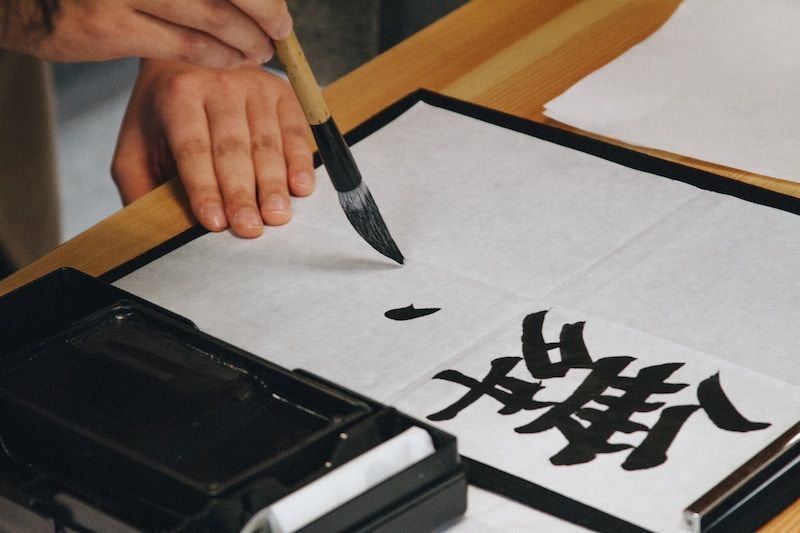Future Vision 2020 - Seth's Personal Goals (#3 and #4)

If you’re anything like me, goal-setting can be a bit of a mixed bag. I’ve met people who eagerly conceptualize their top goals and jot them down. Others stress about not satisfying these challenges, so they intentionally avoid writing them down.
Meeting a goal is phenomenal. Avoiding needless stress is paramount.
I’ve sojourned in each camp. I currently dwell in the I-like-writing-my-goals down campgrounds. If you pitch your tent there, you will find many smart goal-setting frameworks out there to help. For 2020, this is mine.
One of the things I’ve tried recently to establish better goals is to write down all of my year-long intentions... and then rank the top 4. This year, I also want to ask myself 4 follow-up questions for each objective.
Here are 4 follow-up questions as well as a few of my own personal goals for the coming year (stay tuned next week for 1st and 2nd goal): 😄
- Why do you want to accomplish this goal?
- What is disappointing about not achieving this goal?
- What is the joy associated with achieving this goal?
- How will accomplishing this goal contribute to others?
#4. Make exercise and healthy eating part of my lifestyle
Why? Life and ministry are very demanding on every front: spiritually, emotionally, intellectually, and physically. Loving God and loving people means offering my best in season and out of season.
I am inspired by a fellow missionary to Japan and general super-hero John Eisenmann. He wakes up, puts on his podcast of the day, and regularly runs more kilometers than I can count on two hands. All the while, he serves God and family with a smile. One of his secrets is definitely that regular exercise. I need it too.
To that aim, I want to have extra energy at the end of the day to serve well. Not just at 10 am when I am well-rested. No one deserves the “leftovers” of my day, so I’m continuing to commit to making exercise and healthy eating a part of my lifestyle.
This means firing up my BodBot app and heading to the Mukogaoka Yuen Anytime Fitness 3 times a week. Next year I will continue to complete 1-hour workouts incorporating both weight-training and running. In 2020 this means adding another day into my exercise routine, going from 2 to 3 days.
Eating healthy food in Japan can be challenging. Or at least relatively inconvenient, in the land of plentiful and phenomenal convenience stores.
Ordinary Japanese salaryman life includes eating tachisoba (standing soba noodle restaurants) restaurants or gyudon (beef and rice bowl restaurants) on occasion. Many people also opt for a bento, a delicious take-home meal, from the closest convenience store.
Alas, these choices mean mountains of delicious carbohydrates and some meat protein, but sparse to no fresh vegetables.
If the easy eat-out option is exercised too often, it leaves vegetables and other vitamins lacking in my diet. Whole grains are somewhat unpopular in Japan, due to higher prices and less desirable flavors. 😢
For me, continuing to eat the main staples of white bread and white rice isn't a wise choice.
Cutting down on my potential sick days is however a very joyful, positive proposition. Having that extra energy surplus assists me in assisting Jesus. Side projects for Paz Church or Choose Life normally require that extra bit of attention.
Discipleship meetings at the end of the day require excellent listening and focus too.
By God's grace, I'll build that extra vitality to serve our Church family and those outside it. A healthy body, mind, and spirit mean fruitful Kingdom work and extra-encouraged friends throughout the next year.
#3. Set aside Japanese language study time, every day
Japanese language study has resided on my list of goals every year for the last 5 years. And likely will for the next five, there is always something I need to improve on.
High-level grammar usage, vocabulary, kanji, and speaking skills are all essential for active ministry here. It's vital just to pay rent or make a bank transfer.
Reading, in general, comes more naturally to me. I haven't always enjoyed speaking Japanese. Few things require more humility than consistently making elementary school level mistakes in a foreign language.
Many mistakes are absolutely essential for growth in speaking a foreign language. Lord, help me to be humble. 🙏
Consistency is another make or break point here. It isn’t necessarily a learning style or the content you study, learning a language well is just showing up each day.
Efficient learning tools definitely help, and as I’ve seen, SRS (spaced repetition systems) are a must-have tool.
I use two of them. My weapons of choice for the last few years now, have been SRS platforms Anki and Wanikani. Anki is a general-purpose and highly customizable flashcard application. Wanikani, with its curated list of kanji (Chinese characters) and vocabulary, is the best system I've found to burn the 2000+ word-images into my brain.
Kanji, it’s as hard to learn as it looks. 難しい。美しいけど。Praise God, I have made some progress there.
To see what my study has accomplished these last 4 years, I'm excited to take my first Japanese Language Proficiency Test on Dec 1st!
That’s part of my outlook for the upcoming year. I pray these 4 questions will boost your own goal-setting process! Let’s all keep going strong into 2020 together. On that note, I’d love to hear some of your personal goals for the coming year.
Do you have any goals for the upcoming year or a particular method to goal setting?
